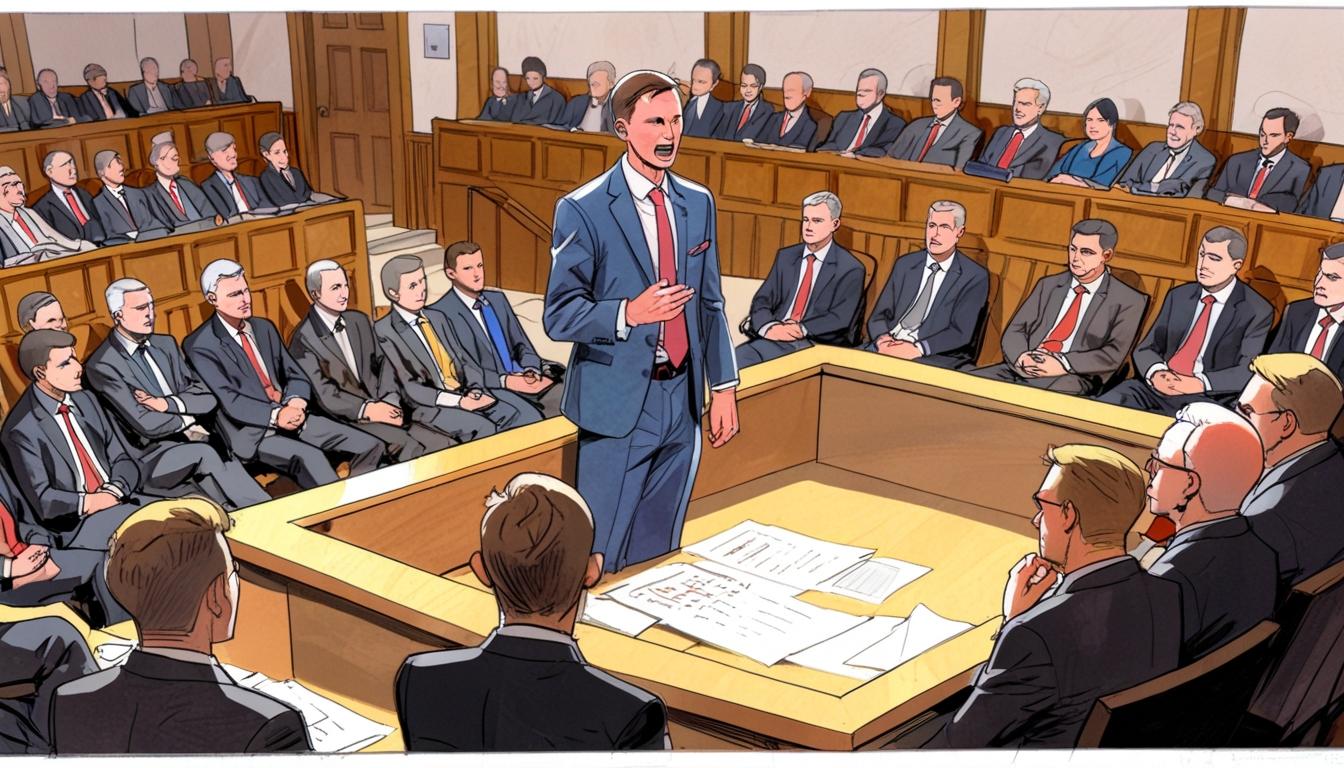Former Chancellor Jeremy Hunt has outlined a proposal suggesting that cuts to adult welfare could enable Sir Keir Starmer, leader of the Labour Party, to commit to significantly increasing the UK's defence spending to over 3% of GDP this week. Mr Hunt, who served as Chancellor until the election was called in July 2022, articulated that such a financial strategy could bolster the UK's ability to support Ukraine and enhance the capabilities of NATO.
Speaking on the third anniversary of Russia's invasion of Ukraine, Hunt told Members of Parliament: “If the Government came forward with plans to reduce the number of adult welfare recipients just to 2019 levels that would save £40 billion a year." He proposed that this savings could facilitate an increase in defence spending to 3% of GDP, or potentially 3.4%, aligning it with current US spending levels. Hunt emphasised that this move would be crucial in securing both Ukraine's future and that of NATO, describing it as one of the most significant challenges facing the UK government.
In a related discussion, Shadow Foreign Secretary David Lammy acknowledged the experience Hunt brings to the conversation, suggesting that the Chancellor of the Exchequer would consider these viewpoints in governmental discussions. Additionally, Dame Priti Patel, the Shadow Foreign Secretary, indicated that some of the UK's official development assistance budget could be redirected to enhance national defence and security, reinforcing calls for defence spending to rise to 2.5% of GDP.
Current UK defence expenditure stands at approximately 2.3% of GDP, which equates to £53.9 billion for the 2023-24 financial year, with government plans already indicating a pathway towards 2.5%.
In another significant development, Ukraine has reportedly made strides towards a minerals deal with the US as it approaches the third anniversary of the invasion. Ukrainian Deputy Prime Minister Olha Stefanishyna announced that negotiations with US officials are in the final stages. This minerals agreement is perceived by Washington as a potential means for Ukraine to repay military aid. Presidential meetings, including those involving Justin Trudeau of Canada and Ursula von der Leyen from the European Commission, have been held in Kyiv with Ukrainian President Volodymyr Zelensky.
Zelensky expressed hope for an end to the conflict within the year, aligning this optimistic outlook with a recent United Nations resolution condemning Russia's actions, despite pushback from nations including the US and North Korea. Donald Trump mentioned that a deal with Putin may be within reach, suggesting the Russian president could be open to accepting European peacekeepers in Ukraine.
However, the potential agreement has faced scrutiny from President Zelensky, particularly regarding earlier drafts that he deemed unacceptable. He stated that he would not sign an agreement that would impose a substantial financial burden on future generations of Ukrainians. The deputy PM remains optimistic, voicing a desire for both US and Ukrainian leaders to endorse the deal promptly to demonstrate a long-term commitment.
Compounded by the backdrop of escalating military actions in Ukraine, where Russian advances have met significant resistance, conversations about defence spending, support for Ukraine, and future military strategies remain central to political discourse within the UK and international sphere. The situation highlights a complex interplay of national safety, economic strategy, and international relations in the face of ongoing conflict and geopolitical tensions.
Source: Noah Wire Services
